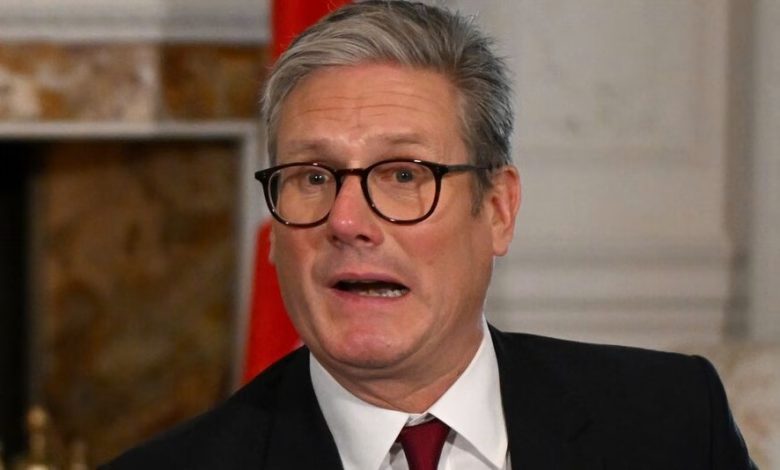UK’s Starmer Celebrates ‘Historic’ Funding for Carbon Capture

- Former Conservative government pledged £20 billion for carbon capture (CCUS) but failed to finalize agreements.
- Labour leader Starmer criticized past delays and stressed the importance of competing in the global CCUS race.
- Independent advisors welcomed the new investment, calling it essential for achieving net-zero emissions.
- Environmental activists warned the plans could extend reliance on fossil fuels and hinder climate goals.
Keir Starmer announced a significant investment of £21.7 billion over 25 years aimed at supporting three carbon capture projects in Teesside and Merseyside, located in northern England.
“This is a landmark week in our national story,” Starmer stated in Chester, near Liverpool, emphasizing the closure of Britain’s last coal-fired power station earlier this week, which he views as a turning point for the country’s energy landscape.
He highlighted the transition to carbon capture and storage as the “largest programme in this new and vital industry anywhere in the world,” marking a significant shift in the UK’s energy policy.
The investment is set to fund “two carbon capture clusters” in regions that have experienced industrial decline, supporting local economies and job creation. The government anticipates that this initiative will attract an additional £8 billion in private investment.
While visiting a glass factory, Starmer acknowledged the necessity for cleaner energy solutions to achieve the UK’s climate goals. He expressed optimism about the potential for carbon capture technology to ease the transition to a more sustainable energy future, stating, “Decarbonisation does not mean deindustrialisation,” and asserting that “the timing is right” for these advancements.
The newly elected Labour government has introduced a flagship public entity, Great British Energy, aimed at driving investment in renewable energy projects to achieve net-zero targets.
The government anticipates that the carbon capture initiatives will generate 4,000 jobs and support an additional 50,000 in the long run, while reducing carbon emissions by 8.5 million tonnes annually.
Carbon capture, utilisation, and storage (CCUS) is a technology designed to prevent emissions produced by burning fossil fuels for energy and industrial processes from entering the atmosphere. This process captures carbon, which is then permanently stored in various underground locations.
Starmer noted that the UK continental shelf contains “a third of exploitable carbon storage space in all of Europe.”
The investment will also finance the development of transportation and storage networks to facilitate the movement of captured carbon to geological storage sites in Liverpool Bay and the North Sea.
Although discussions regarding this technology have been ongoing for over a decade, the recent announcement indicates that the first carbon dioxide storage operations are set to commence in 2028.
The former Conservative government had pledged approximately £20 billion for carbon capture, utilisation, and storage (CCUS) over 20 years. However, Starmer contended that the Tories failed to finalize any agreements or allocate the funds.
He criticized previous administrations for being “too slow” in addressing the issue and emphasized that “carbon capture is a race that we can win.”
Highlighting similar initiatives in Europe and the United States, Starmer described the development of carbon capture technology as a “global race.” He expressed satisfaction with the UK’s positioning, stating, “I am really pleased that we’re putting ourselves in a position not just to be in that global race, but to win.”
Independent advisors from the Climate Change Committee regarded the announcement as “very reassuring.” The International Energy Agency has labeled CCUS technology as “critical” for achieving net-zero emissions.
However, environmental groups, including Greenpeace UK, criticized the plans, arguing that they could prolong the reliance on fossil fuels, jeopardizing efforts to combat climate change.
Additionally, last month, UK climate scientists sent a letter to Energy Security Secretary Ed Miliband, cautioning that CCUS relies on “unproven technology.” The letter warned that this strategy might “lock the UK into using fossil fuel-based energy generation well past 2050.”






